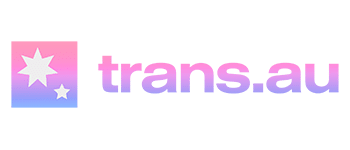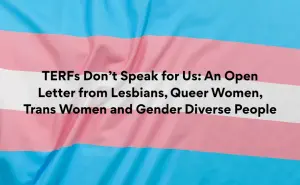This article was originally published by Equality Australia. You can find the original article here.
Sep 4, 2024 – Reporting today in The Sydney Morning Herald suggesting that the Prime Minister has reached a “compromise” solution to the census questions by excluding some members of the LGBTIQ+ community is not tenable.
Equality Australia and LGBTIQ+ health organisations are urging the Prime Minister and government leaders to properly count the community.
The ABS has been working with its LGBTIQ+ Expert Advisory Committee to develop and test questions that would count trans and intersex people in Australia. These questions have already been asked in other household surveys administered by the ABS.
Eloise Brook, CEO of AusPATH:
“The only common-sense solution is to include trans people in the Census. Census data will tell us the size and the scope of the health crises affecting trans people in Australia. Without that data our emergency rooms will continue to replace our GP’s offices as the place of primary care for trans people. As a direct result of not knowing, state health departments will continue to spend 10s of millions of dollars every year on preventable and manageable health solutions.”
LGBTIQ+ Health Australia, Nicky Bath:
“The questions that are under consideration are not complicated and are based on the current best practice for asking questions on gender, sexual orientation and innate variations of sex characteristics.
“As the Prime Minister has said, it is critical that the ABS be allowed to do its job. The ABS must get the 2026 census back on track and proceed as planned with all three topic areas being tested.”
Ms Bath said the data was critical for health service planning.
“Primary Health Networks rely on this data to inform how they invest is health services. Without the inclusion of these three questions, they will continue to be unable to meet the need of LGBTIQ+ people.
“Census data is used for health service planning. Without the questions in the census, we will not know how to target primary care, preventative health and tertiary health care well for LGBTIQ+ people.
“An example of this is planning training for GPs on how to provide the best care for LGBTIQ+ people. Rather than using scarce resources, hoping we can get as many GPs trained as possible, we can focus the training on GPs in areas we know we are living. This will result in better use of scare resources and much better-quality outcomes.”
Switchboard Director of Services, Anna Bernasochi:
“As an LGBTIQA+ service, that runs two seven-day-a-week helplines, we speak to people in our community from all across Australia.
“If counted, Census data can give us the most complete view of where LGBTIQA+ people live and other key insights like age, disability, and income. This will help target resources to collectively drive down the disproportionately higher levels of poor mental health and suicide for LGBTIQA+ people. This is how serious this issue is.
“To divide our Rainbow communities, and say gay, lesbian and bisexual can be counted but not trans, gender diverse and people with an intersex variation, is both statistically poor and politically divisive.”
“Including all LGBTIQA+ people in the 2026 Census isn’t just about numbers and it’s certainly not an exercise in abstracted diversity and inclusion—it’s actually about saving and improving lives. With the right data, we can build stronger mental health systems and targeted suicide prevention that genuinely supports our communities.”
Equality Australia CEO Anna Brown said:
“The government’s current proposal only delivers part of the picture. We simply want questions included that would count the number of trans and intersex people in Australia.
“Properly counting the LGBTIQ+ community would mean better modelling for health programs, benchmarking data that could ensure the community is factored into decision making moving forward and it would inform with credible data where to place services.
“Being counted has real world implications for a community that has specific health needs compared to the Australian population at large.”
Intersex Human Rights Australia Executive Director Morgan Carpenter said:
“The 2016 and 2021 censuses sought to capture data on people with innate variations of sex characteristics but they did so in ways that were harmful and that did not produce reliable meaningful data. We have an opportunity to do better in the 2026 Census.”
Media contact: Emily Mulligan, 0411 207 633, [email protected]





